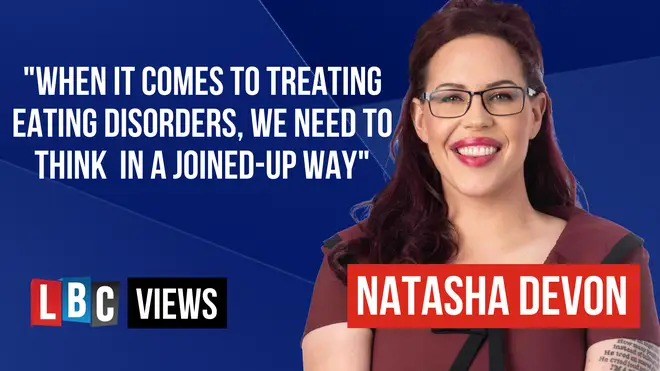
Paul Brand 4pm - 7pm
24 May 2022, 10:52 | Updated: 24 May 2022, 11:10

I was in my mid-twenties and had been dating someone for a couple of months when they told me they’d noticed I was ‘a bit weird around food’.
Hesitantly, I explained that I was newly in recovery from an eating disorder and then braced myself for what they’d say next…
‘Wow, you’re big for an anorexic’ was the response.
At the time, this reinforced my belief that my illness wasn’t ‘real’ and that I wasn’t deserving of help: Despite having been assessed and diagnosed and having numerous, severe physical and psychological symptoms.
Now, with the benefit of more than a decade’s hindsight, I can see that this person’s reaction said more about how we perceive and understand eating disorders as a society than it did about the legitimacy of my own illness.
Unfortunately, not much has changed since then. Still, when people think ‘eating disorder’ they automatically tend to assume anorexia.
There is also a widely held belief that it only happens to a certain type of person: young, female, white and very, very thin.
These are the stories we hear and the pictures we see.
It’s these dangerous misconceptions - That eating disorders are incredibly rare, that you could tell with a perfunctory visual assessment whether or not someone had one, that they’re a ‘phase’ teenage girls grow out of – That lead to the oft-parroted statement ‘eating disorders are terrible, of course, but obesity is a much bigger problem’ when media host discussions on anything from plus size mannequins to calorie-labelling on menus.
As though they’re two issues at polar opposite ends of the scale and have nothing to do with one another.
I should preface this by saying, some people are fat and perfectly happy.
There are 114 unique contributory factors which determine an individual’s weight, including genetic, medical, environmental, psychological and lifestyle elements.
Not every fat person has an eating disorder. But some do, not least of all because starving and binging plays havoc with metabolism.
As a society, we tend to underestimate the prevalence of eating disorders.
Stats can only tell us so much in a culture steeped in stigma: I once spoke to a guy at a conference who said he went into some eating disorder training thinking he didn’t know anyone with experience of the illnesses and came out realising he knew six, including his sister.
We also overestimate and misunderstand obesity, forgetting that BMI is antiquated and inaccurate and that, when it comes to the relationship with disease, correlation and causation aren’t the same thing.
Recent figures have shown hospitalisations for eating disorders have risen 84% in the past five years, with young people particularly affected.
But hospitalisations are only the tip of the iceberg.
There are millions of people suffering, who are either too ashamed to seek help or who don’t meet the NHS’ dizzyingly high thresholds (necessarily implemented because of a lack of resources).
We are all surrounded by a culture which actively promotes a fraught relationship with our bodies. It tells us that thinness is akin to health, that our lives would be better if we looked different, that our value is inextricably linked with our desirability.
Food is fetishized but fat bodies are treated with disgust and ridicule.
I often think the bulimia nervosa I battled in my late teens and early twenties was a natural response to that.
When it comes to treating eating disorders, we need to start thinking in a joined-up way.
They’re not something that happens to unfortunate and broken individuals, they’re something our society actively encourages, then wilfully misunderstands.